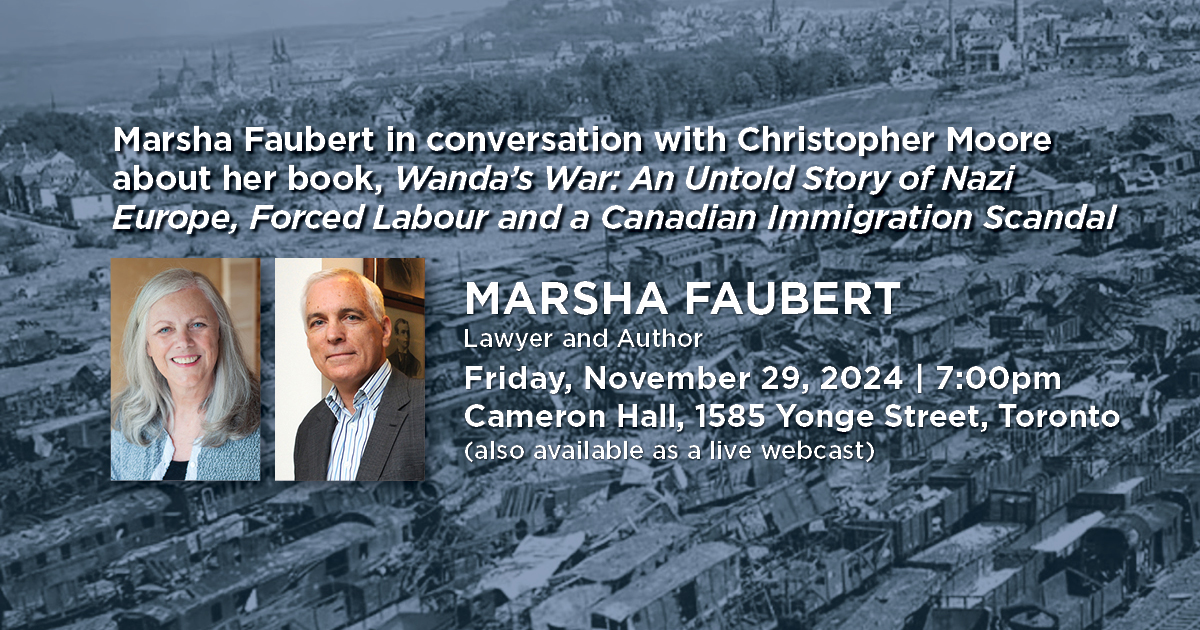
Lecture Description : In Wanda’s War, Marsha Faubert introduces a dimension of the Second World War many Canadians have rarely contemplated. Stories of Canadians on the battlefield, the struggles of the home front, even the experience of Britons under bombing, are well known. But many of today’s Canadians trace their roots to the postwar migration of refugees from Eastern Europe and the Baltic states, whose war experiences remain buried.
Wanda’s War reconstructs the lives of Faubert’s parents-in-law, Wanda and Casey, and the lesser-known events of the war that shaped their lives. With not one, but two occupations of their homeland in Poland’s eastern borderlands, both were torn from their homes and deported to forced labour — one to Nazi Germany, the other to subarctic Russia. An “astonishing yet uplifting addition to the great body of literature of the Second World War” (David Marks Shribman), Wanda’s War speaks to the broader refugee experience that has unfolded globally since WWII and, tragically, continues today.
Historian Christopher Moore will join Faubert in a wide-ranging conversation about the book’s themes — the geopolitics of eastern Europe, gulags and slave labour camps, postwar displacement and immigration, and the politics of memory.
Biography : Marsha Faubert is a lawyer and writer of narrative nonfiction. She began her legal career as a litigator, and later worked in various roles in the administrative justice system in Ontario. Her first book,
Wanda’s War — An Untold Story of Nazi Europe, Forced Labour, and a Canadian Immigration Scandal, raises themes of memory and silence, justice and forgiveness through the lens of the wartime and immigration experiences of her husband’s parents. She is in the early stages of a new project which will examine the history and legacy of environmental injustice in her hometown of Sarnia, known to some as Canada’s Chemical Valley.

